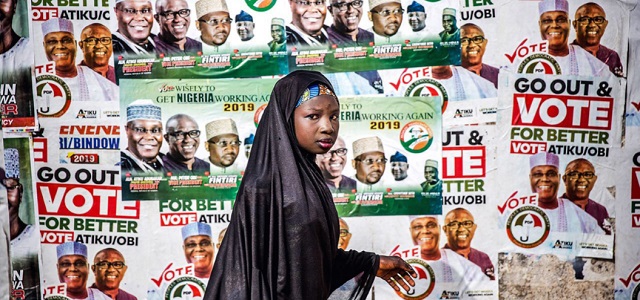
Their ageing rulers are finding new ways to thwart them
| THE INDEPENDENT | One day in January Comlan Hugues Sossoukpe woke before dawn in Lomé, the capital of Togo, and slipped across the frontier to a safe house in Benin. It was only the second time he had been in his home country since May, when he fled after being charged with “breaching public order”. His apparent crime: writing about how troops loyal to Patrice Talon, Benin’s president, shot peaceful protesters.
The 33-year-old—eloquent, passionate, tired—explains that activism is a family trait. His father spent years on the run and three uncles were sent to labour camps for opposing the dictatorship of Mathieu Kérékou, one of dozens of autocrats who bestrode Africa in the 1970s and 1980s. His relatives fought for Benin’s trailblazing shift to multi-party elections in 1991, a move that was replicated by most African countries by the end of the decade. “I consider myself a child of democracy,” he says.
Like many such offspring he is frustrated with his inheritance. Until recently Benin was a bastion of liberty. But the government of Mr Talon, a tycoon elected president in 2016, has stuffed courts with cronies, excluded opposition parties from elections, shut down the internet and arrested journalists. Each year Freedom House, a watchdog in Washington, publishes a global assessment of democracy, giving each country a score out of 100. Benin’s decline in 2019, from 79 to 66, or from “free” to “partly free”, as per the report’s categories, is one of the largest drops ever for an African country. “Now that our freedoms are being lost we realise what we had,” reflects Mr Sossoukpe.
No one story can epitomise the hopes of a country, never mind a continent. But Mr Sossoukpe is far from alone in his aspirations. Across Africa the demand for democracy is outstripping supply. Young, urban populations want the right to express themselves, vote in fair elections and hold leaders to account—at the same time as already flawed democracies are becoming more so. It is a mismatch that will shape the continent. “Younger Africans do not want to go back to one-party states or military rule,” says Chris Fomunyoh of the National Democratic Institute, another American watchdog. “They want to improve on the baseline they’ve been given.”
That is not an easy starting-point given the history of post-colonial Africa. Departing European powers made only cursory efforts to leave behind democratic institutions. Their priority was to leave quickly, keeping business and diplomatic ties. By the end of the 1970s just three countries in sub-Saharan Africa were definitively multi-party democracies (Botswana, the Gambia and Mauritius). More than two-thirds had undergone military rule. There were at least 40 coups.
The colonial legacy is one reason why nearly every country became authoritarian. Africa has more than 2,000 languages and 6,000-10,000 political groupings. Europeans drew borders with callous disregard for facts on the ground. They ruled using coercion and co-option, devolving power to tribal leaders, some of whose chiefly credentials were invented, as was the case with the Igbo in Nigeria. When they took over weak and diverse states, new leaders often adopted tools of repression and patronage.
Following colonial ways was often the easiest path. But rejecting Western-style democracy was a choice that several African leaders consciously made. Tanzania’s Julius Nyerere argued that multi-party democracy was “unAfrican”. One-party states, he said, better reflected a culture where consensus was prized.
Other leaders were less erudite. The 20th century saw a rogue’s gallery of dictators: murderous despots like Jean-Bédel Bokassa (Central African Republic) and Idi Amin (Uganda); ostentatious kleptocrats such as Mobutu Sese Seko (Congo) and Sani Abacha (Nigeria); charismatic megalomaniacs such as Kwame Nkrumah (Ghana); paranoid rulers like Daniel arap Moi (Kenya) and Hastings Banda (Malawi). Banda ran seven different security services and banned the song “Cecilia” by Simon & Garfunkel because it offended his unofficial first lady, Cecilia Kadzamira.
By the time the Soviet Union collapsed many African economies were broke. That led to protests and the fall of some tyrants previously propped up by Moscow. It also made it easier for a self-confident West to insist on elections as a condition of aid or credit. By 1994 only 35 countries in sub-Saharan Africa had held elections; by 2010 just two had not (Eritrea and Eswatini, formerly Swaziland). Academics call this era the “second wave” of democratisation, three decades after independence.
Authoritarian rulers used patronage networks to woo pliant elites, especially those of their own ethnic group. They ran what Frederick Cooper, a historian, calls “gatekeeper states” that controlled access to foreign aid, receipts from natural-resource exports and taxes on trade. Since they relied on minerals and foreigners for cash, rather than income taxes, they had little incentive to nurture an urban middle class, and little accountability to their own people. They kept the rural poor in line with handouts and threats. They prized loyalty over competence.
 The Independent Uganda: You get the Truth we Pay the Price
The Independent Uganda: You get the Truth we Pay the Price





